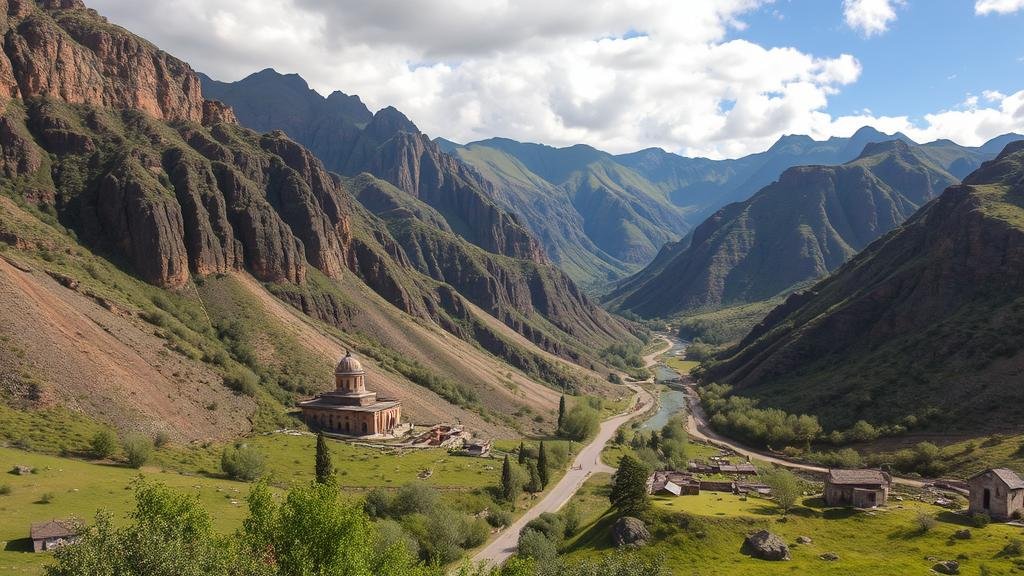Pursuing the “Valley of the Ancestors,†a spiritual site for connecting with lost generations.
Pursuing the “Valley of the Ancestorsâ€
The “Valley of the Ancestors†is a spiritual site that offers a unique opportunity to connect with lost generations and reflect on the legacy of those who have come before us. Located in various parts of the world, including notable examples in countries like Nepal and Ethiopia, this sacred space serves as a poignant reminder of our collective history and the importance of maintaining a connection with our ancestry. This article explores the significance, history, and experiences associated with this remarkable spiritual journey.
Historical Background
The concept of the Valley of the Ancestors is deeply rooted in various cultures, often depicted as a place where individuals can honor and remember their predecessors. In the context of Nepal, for instance, the sacred valley of Bhaktapur, established in the 9th century, is renowned for its intricate architecture and spiritual heritage. Similarly, in Ethiopia, the Tigray region is home to ancient rock-hewn churches that provide insights into the spiritual practices of ancestors dating back to the 4th century.
- In Nepal, the Pashupatinath Temple complex stands as a vital pilgrimage site, where traditions associated with honoring ancestors are still observed today.
- Ethiopian Orthodox Christians often visit Lalibela, home of the rock-hewn churches, to pay homage to their ancestral faith and cultural identity.
Connecting with Ancestry
The Valley of the Ancestors serves as a metaphoric and physical bridge to the past. Visitors often engage in rituals that promote reflection, such as lighting candles, making offerings, or simply being present in the serene ambiance. This practice fosters a sense of belonging and cultural continuity, allowing individuals to feel connected to generations long gone.
For example, during the annual “All Souls’ Day†celebration in Mexico, families gather at cemeteries to honor their ancestors with offerings of food, flowers, and decorated altars. This tradition not only highlights the importance of remembering the deceased but also reinforces community bonds through shared heritage.
Experiences Offered at the Site
Visiting the Valley of the Ancestors typically offers a multifaceted experience that combines spirituality, reflection, and education. Visitors can expect:
- Guided tours that delve into the historical significance of the site.
- Workshops that educate participants on traditional rituals and their meanings.
- Moments of solitude for personal reflection and meditation.
For example, at the Temple of the Ancestors in Kalpa, India, a serene environment allows visitors to engage in meditation, enhancing their spiritual connection to the land and its history.
The Importance of Preservation
As urbanization and globalization continue to influence cultural landscapes, the preservation of sites like the Valley of the Ancestors becomes increasingly important. e sites help us understand our roots and maintain our cultural narratives amid rapid change. Plus, local communities recognize the significance of these locations, often undertaking initiatives to protect and promote ancestral sites as a means of preserving their heritage.
For example, UNESCO has designated several ancient pilgrimage routes and cultural landscapes as World Heritage Sites, acknowledging their cultural significance and the need for conservation efforts. This highlights a growing recognition of the value that ancestral connections hold for global society.
Conclusion
The “Valley of the Ancestors†offers a profound avenue for individuals seeking to reconnect with their heritage and honor their lineage. Whether through participation in rituals, exploring significant sites, or reflecting on family histories, the opportunities for personal growth and understanding are plentiful.
As we continue to pursue our ancestral connections, let us embrace the lessons of the past while cultivating a profound respect for those who have paved the way for future generations.
Actionable Takeaways
- Consider planning a visit to a local site significant to your ancestry.
- Engage in family storytelling sessions to preserve the memories of your ancestors.
- Support cultural preservation efforts in your community to protect ancestral heritage.



